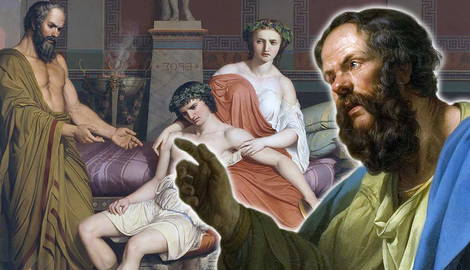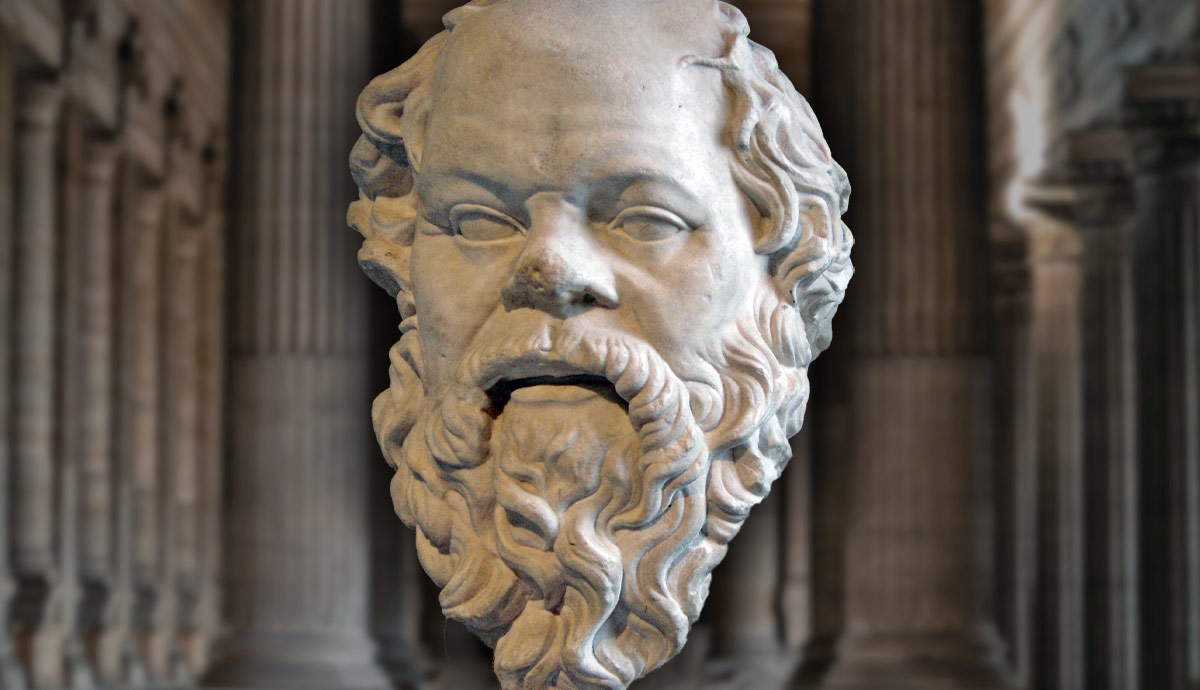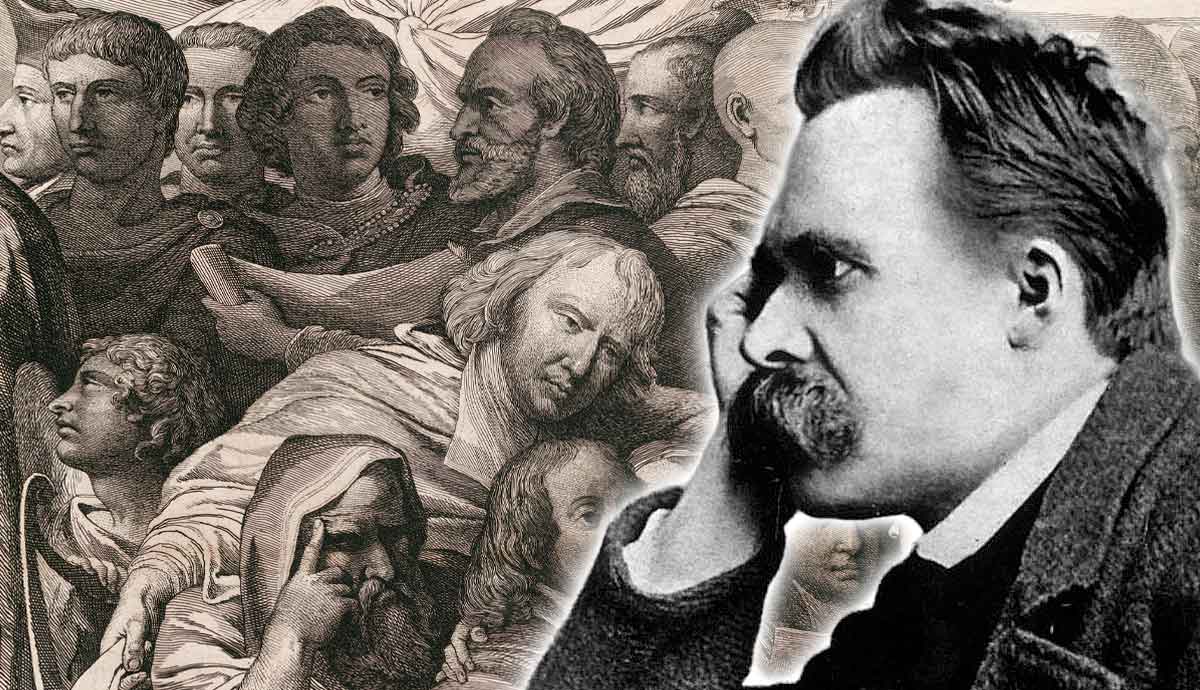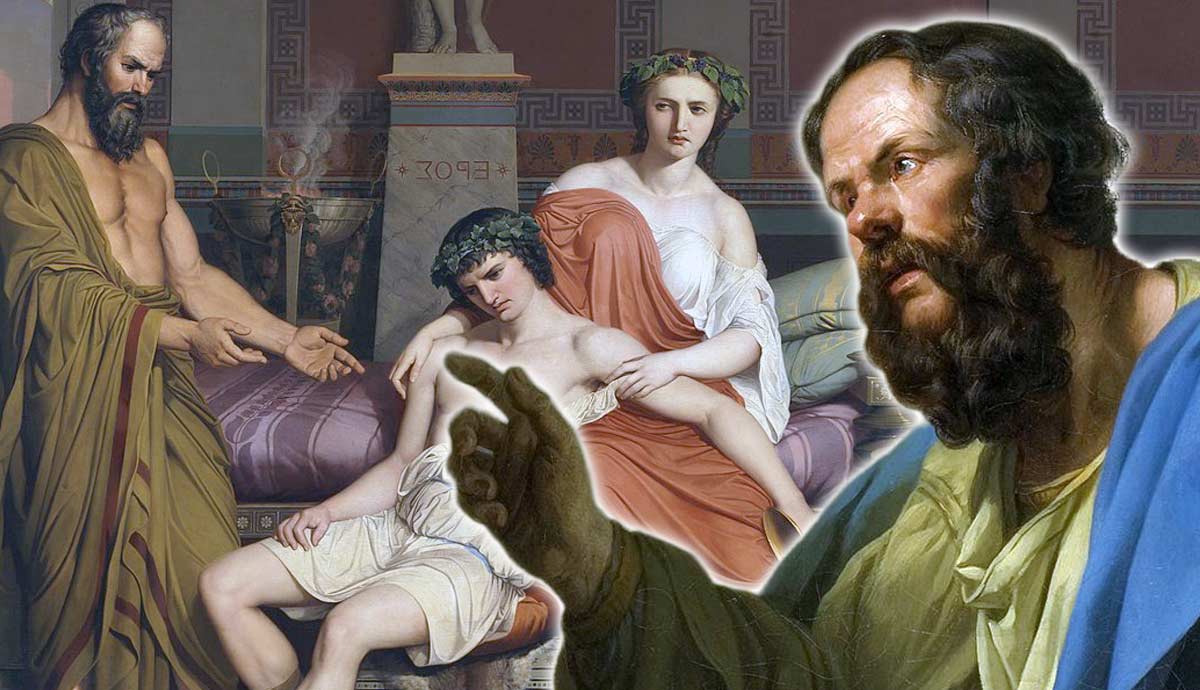
There are roughly 35 dialogues written by Plato featuring a cheeky and relentless Socrates. However, this number is only a rough estimate since some dialogues were later universally rejected as having been written by Plato, and others have been the subject of rigorous debate, with many scholars on either side. This article discusses the contested dialogues, the ones about which we are just not sure if Plato authored them or not. So, let’s take a look and decide for ourselves—are these authentic or imitations?
1) Alcibiades Major
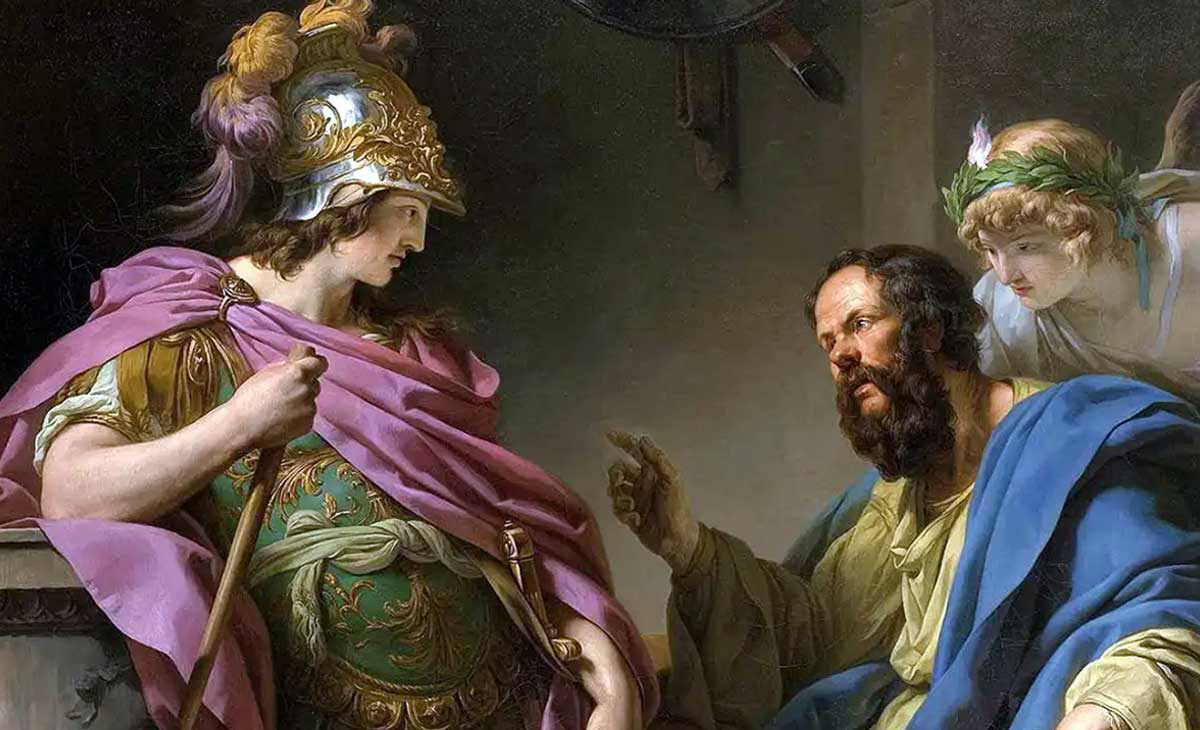
The dialogue Alcibiades is a Platonic dialogue between Socrates and an ambitious young statesman from Athens named Alcibiades, who will be the interlocutor. Socrates tries to enlighten Alcibiades about the true essence of knowledge and the need for introspection.
At the beginning of the conversation, Alcibiades storms into the room where a group of people, including Socrates, is present, declaring his intention to address the people at this gathering. This leads him to talk with Socrates, who recognizes his potential but also knows he is a very proud person.
Socrates begins by asking Alcibiades what he wants to achieve throughout his life. According to Alcibiades, his desires in life include the pursuit of power, glory, and prosperity through politics and military engagements. Even though Socrates believes in Alcibiades’s ability to be a great politician, he challenges whether Alcibiades lacks crucial knowledge—does he really understand what wisdom and virtue mean?
Throughout these deliberations, Socrates utilizes his usual dialectic method to help Alcibiades introspect and discover some important truths—it is not external achievements or reputation that qualify one as a wise person. Rather, it means knowing oneself and leading a life consistent with their own nature.
Without this intimate understanding of the self, there is the risk of moral decay and self-deception during the pursuit of fame and glory. Socrates urges Alcibiades to take a long, hard look at his soul in search of inner harmony and acceptance rather than the need to win the admiration and acceptance of others.
Alcibiades serves as a great philosophical exploration of the Socratic ideal of wisdom and introspection of the soul without getting too bogged down in other metaphysical questions. Through his interactions with Alcibiades, Socrates demonstrates the importance of examining our beliefs and the necessity of seeking virtue within oneself rather than in external pursuits. The dialogue highlights the transformative power of philosophical inquiry and the lifelong journey of self-discovery.
Why Is Alcibiades Contested?
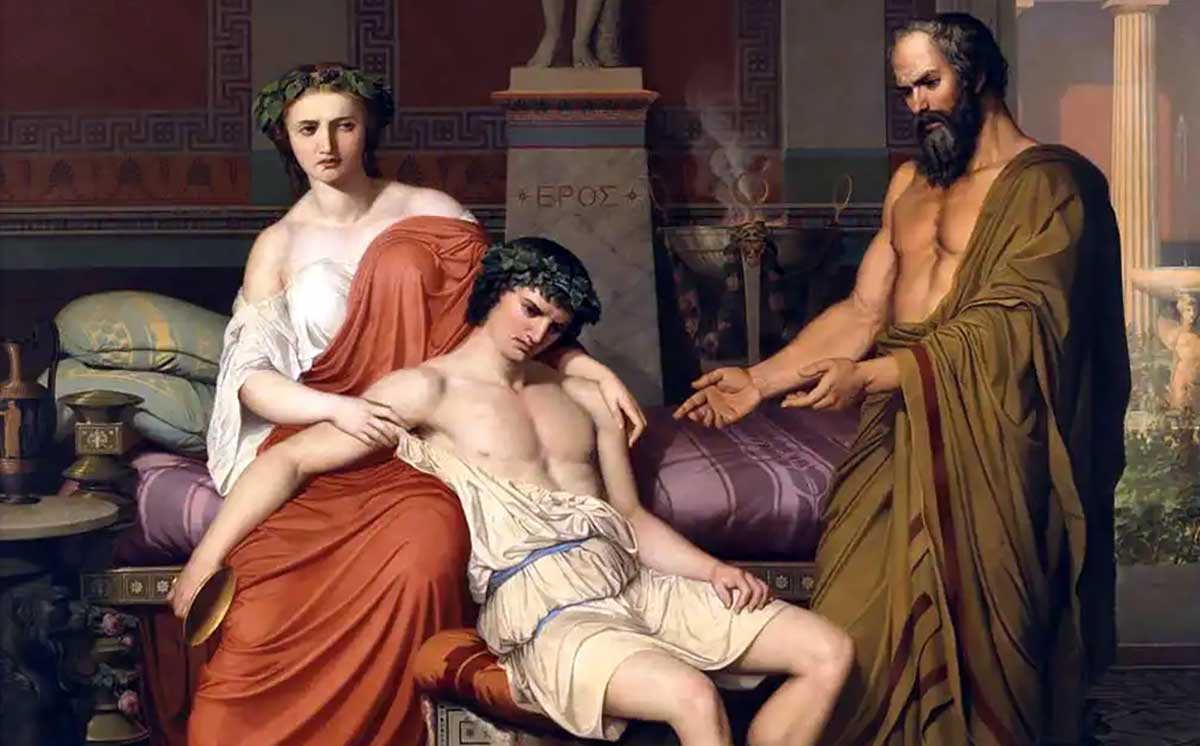
Scholars have debated the authorship of the dialogue “Alcibiades” in recent history, but it was once considered one of the best dialogues for an introduction to Plato due to its straightforwardness and accessible style. However, once its authenticity was up for debate, the dialogue began to fall out of favor.
Ernst Friedrich Schleiermacher was the scholar who first denied that Plato was the author of Alcibiades due to its lack of uniformity and what he believed to be a lack of Plato’s usual excellence. In his words:
“This little work, which, with those who are accustomed to admire in the gross, has been ever a subject of most especial commendation, appears to us but very insignificant and poor, and that to such a degree, that we cannot ascribe it to Plato, even though any number of these who think they can swear to his spirit, profess most vividly to apprehend it in this dialogue.”
Thus, he concludes that the dialogue is likely small fragments of Plato’s writing expanded upon by a student or later reader of Plato. Many have agreed with his conclusions, but there are still some defenders of the authenticity of the Alcibiades.
Some scholars who doubt whether Plato wrote this dialogue point to the lack of verification from later writings from Aristotle. Since Aristotle’s writings are a significant tool in the dating, verification, and recording of ancient writers, this is a fairly weighty concern.
They point to differences in language, structure, and philosophical themes as evidence that it may have been written by a different author or represents an early work by Plato before he fully developed his philosophical ideas.
Others suggest that “Alcibiades” may be a satirical or parody work rather than a serious philosophical dialogue, arguing that the portrayal of Alcibiades’s arc from beginning to end is exaggerated and caricatured, indicating a different purpose or author.
Lastly, without the verification from Aristotle, dating the composition of Alcibiades is challenging, as it lacks clear historical or chronological markers. Some believe it may have been written during Plato’s early period, which would account for the difference in structure and quality. However, most scholars agree this likely makes it an imitation rather than a genuine work of Plato.
2) Greater Hippias
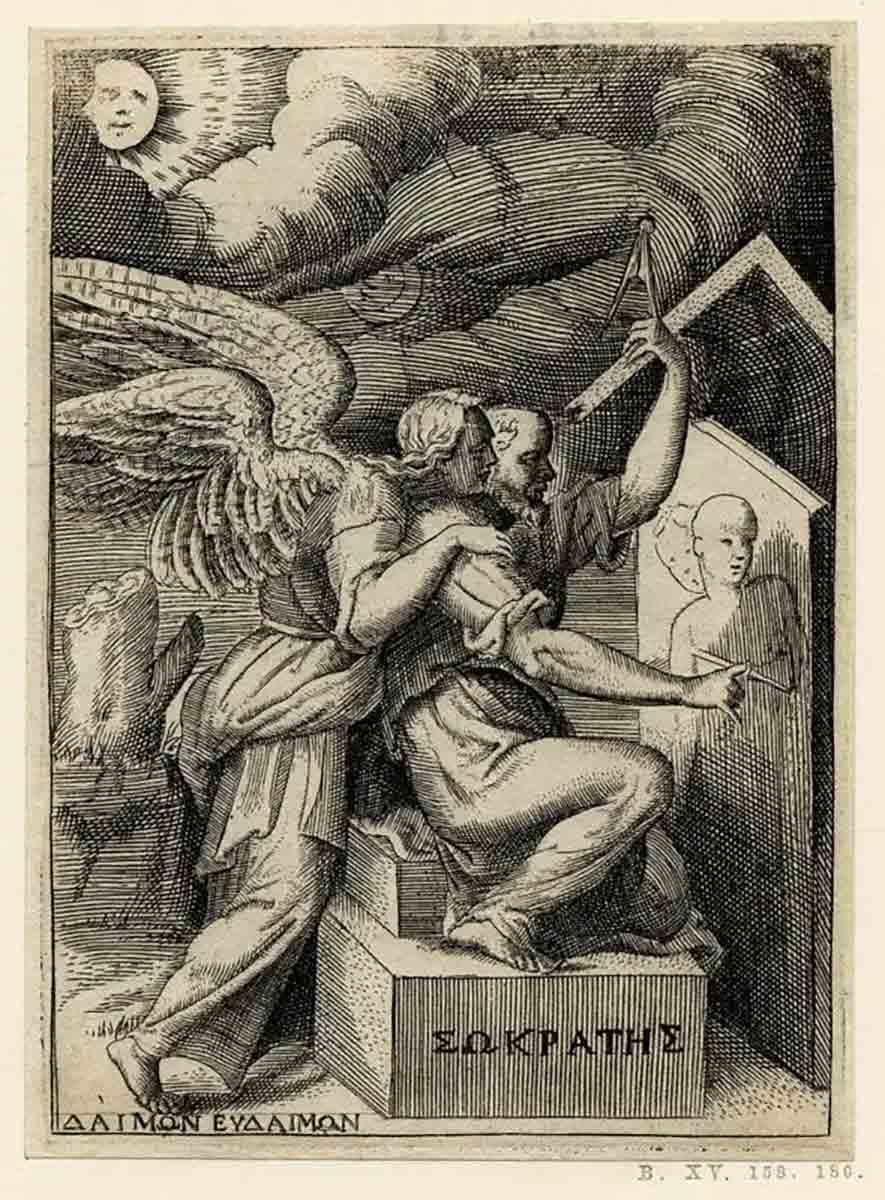
Greater Hippias is a Platonic dialogue between Socrates and the sophist Hippias of Elis. The dialogue primarily revolves around what constitutes beauty and how something can be good-in-and-of-itself, meaning that its goodness is a brute fact and not connected to any usefulness, effects, or results.
Socrates begins the dialogue by expressing his admiration for Hippias’ wide range of expertise, including poetry, history, and craftsmanship. Hippias modestly accepts this compliment, admitting his expertise. Socrates then goes on to ask a series of questions about beauty, questioning whether its good is inherent or if it is a result of its utility. Initially, Hippias states that beauty is always good and useful. Nonetheless, he is challenged by Socrates using counterexamples, as is the mark of the Socratic dialectic.
As the dialogue progresses, Socrates and Hippias try out several definitions of beauty, including physical beauty, artistic beauty, and moral beauty. They discuss the intricacies of aesthetic judgments and the nature of beauty, debating whether beauty is objective or a matter of subjective preferences.
In a nutshell, Greater Hippias serves as a philosophical exploration of the concept of beauty, the nature of expertise, and the complexities of aesthetic judgments.
Why Is the Greater Hippias Contested?
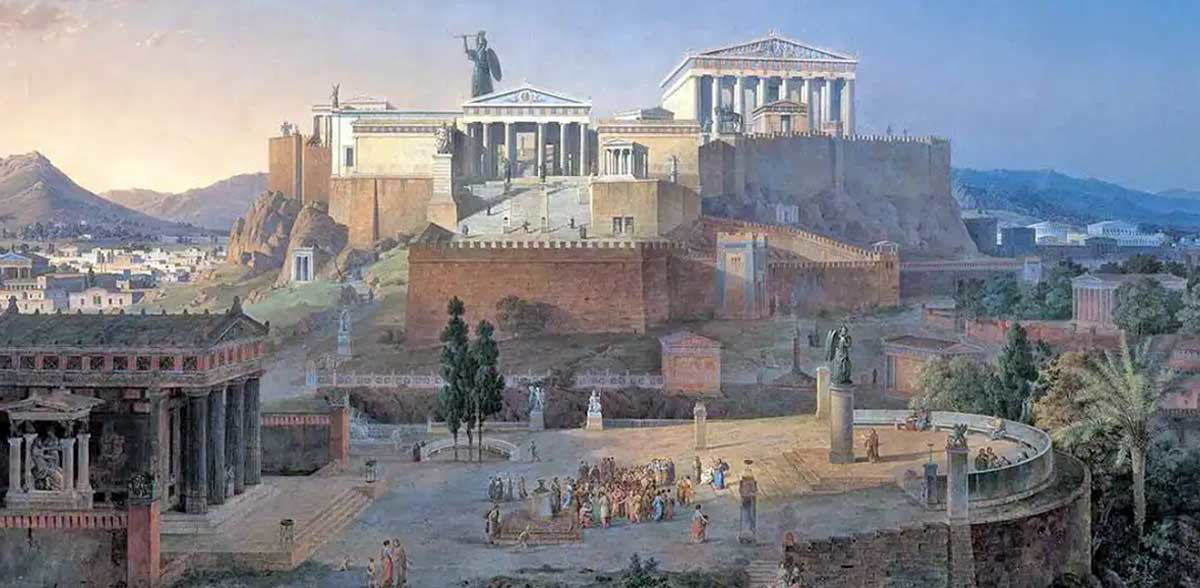
As was discussed in earlier sections, a dialogue not being listed by ancient scholars such as Aristotle is an immediate reason to question the authorship. However, this does not always mean that a dialogue is an imitation! Several other dialogues that are universally agreed upon as Plato’s have also been missing from these recordings, such as the Parmenides.
There is another dialogue connected to the Greater Hippias, which has been called the Lesser Hippias due to its shorter length than the traditional Platonic dialogue. In the Lesser Hippias, Socrates is described as taking a very long pause within the conversation. The Greater Hippias conveniently sheds light on what Socrates may have been pondering during this pause. Some have argued that this convenience is actually the mark of a pupil expanding upon and interpreting the silence.
However, many still defend and cite the Greater Hippias as being authentically Plato as there are also many reasons for its being included. This dialogue is masterful in execution and shows many similarities in style with earlier dialogues that have been universally accepted as Plato’s writings.
3) Clitophon
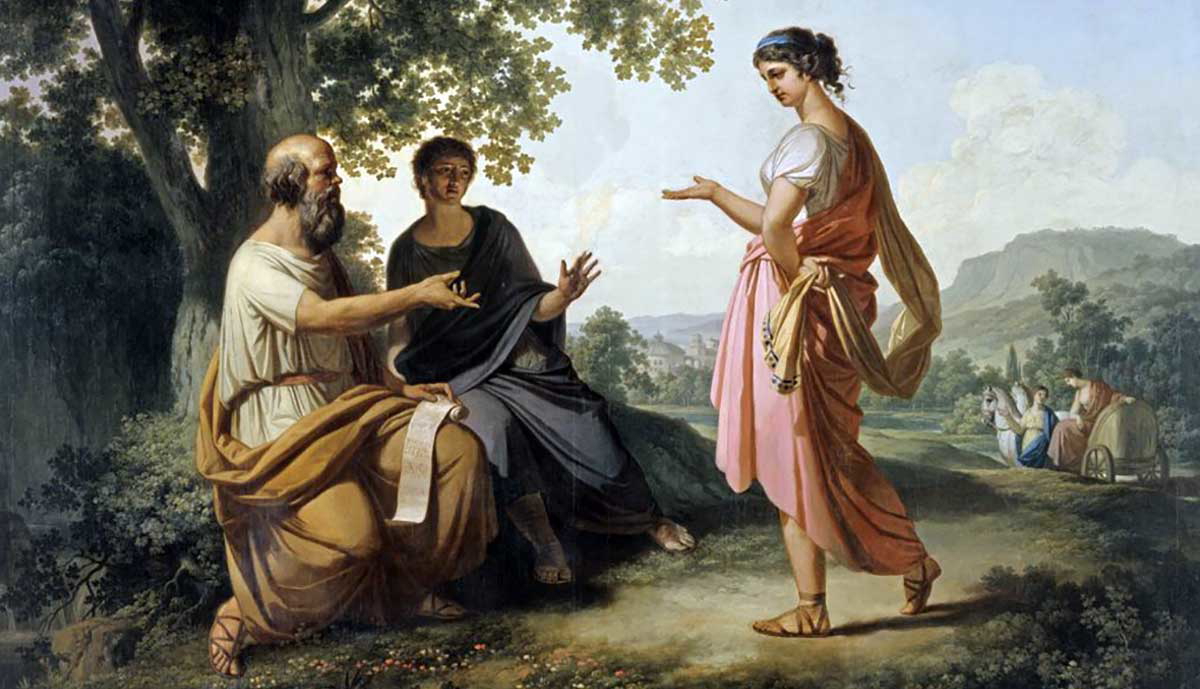
Clitophon is a Platonic dialogue that has not received as much attention as others, such as Symposium, Phaedo, or the Republic. Its subject matter concerns rhetoric, virtue, and the value of knowledge. Clitophon is the interlocutor, someone that we are exposed to in the Republic as an acquaintance of Thrasymachus.
The dialogue opens with Clitophon expressing his frustration and disappointment with Socrates’s teachings. He complains that, despite genuine time and effort, he has not gained the wisdom that he desires. Clitophon accuses Socrates of failing to provide clear instruction and guidance, leading him to question the value of philosophy. In a sense, Clitophon is a lot like a freshman in their first philosophy class.
Socrates challenges Clitophon to clarify what he believes Socrates is doing well and what he is doing badly, stating that Clitophon’s feedback will help him. So, Clitophon launches into his soliloquy of the good, the bad, and the ugly. He expresses how when Socrates speaks, he is often in awe and moved by his words. However, upon further examination, he comes up with more questions, paradoxes, and absurdities than ever before.
At a later point in the conversation, Socrates and Clitophon discuss the nature of rhetoric and its relationship to truth. There is a scathing critique of the practice of rhetoric as a superficial art of persuasion that often relies on manipulation and deception—what we now would recognize as sophistry. Clitophon emphasizes that he truly believes that rhetoric and persuasion are vastly different from actual knowledge and virtue. The latter is centered on the self, while the former is focused on the opinions of others. It shouldn’t be much of a puzzle which was the right choice according to Plato!
Throughout the dialogue, Socrates is mostly silent, while Clitophon gives this very long-winded speech. Throughout it, Clitophon charges that Socrates—while very good at getting folks initially on the path of philosophy—is actually a roadblock for those who are already on the path to knowledge and virtue. Clitophon vows to continue his journey for knowledge and virtue with renewed determination and energy, basically in spite of Socrates!
Why Is Clitophon Contested?

One significant difference between this dialogue and others is that our interlocutor, Clitophon, is actually on the offense, and Socrates is grilled mercilessly.
This has led scholars to wonder who the author is. It could be Plato who was maybe attempting to show the value of Socrates’s methods, even when not employed by Socrates himself. However, the reversal of roles calls into question the author’s beliefs and motives in a way that is not seen in other dialogues where we are sure of Plato’s ownership.
This dialogue is also very short, enough so that it is also theorized that, if it is Plato’s writing, it is potentially only a draft or fragment that was cut from the final draft of his Republic.
